
* A Distributed Proofreaders Canada eBook *
This eBook is made available at no cost and with very few restrictions. These restrictions apply only if (1) you make a change in the eBook (other than alteration for different display devices), or (2) you are making commercial use of the eBook. If either of these conditions applies, please contact a https://www.fadedpage.com administrator before proceeding. Thousands more FREE eBooks are available at https://www.fadedpage.com.
This work is in the Canadian public domain, but may be under copyright in some countries. If you live outside Canada, check your country's copyright laws. IF THE BOOK IS UNDER COPYRIGHT IN YOUR COUNTRY, DO NOT DOWNLOAD OR REDISTRIBUTE THIS FILE.
Title: Saturday to Monday
Date of first publication: 1929
Author: Newman Levy (1888-1966)
Illustrator: John Held, Jr. (1889-1958)
Date first posted: April 17, 2023
Date last updated: April 17, 2023
Faded Page eBook #20230428
This eBook was produced by: Al Haines, Cindy Beyer & the online Distributed Proofreaders Canada team at https://www.pgdpcanada.net

SATURDAY TO MONDAY
NEWMAN LEVY:
Opera Guyed • 1923
Gay but Wistful • 1925

Copyright 1929, 1930, by
NEWMAN LEVY
TO RUTH AND LEN
TO WHOM
NONE OF THESE VERSES APPLY
THIS BOOK IS
AFFECTIONATELY DEDICATED
Contents
1 • The Invitation • 3
2 • The Acceptance • 5
3 • Grand Central Station • 7
4 • Directions • 9
WEEK-END VERSES
5 • The Arrival • 16
6 • The Gifts • 19
7 • To My Host’s Eight-Year-Old Son • 20
8 • Sunday Paper • 23
9 • The Guest Room • 27
10 • Guest Room Books • 31
11 • The Bathroom • 35
12 • Ode to a Guest Towel • 37
13 • The Strenuous Host • 39
14 • The Host with a Radio • 41
15 • A Chaplet of Roses • 44
16 • Anagrams • 46
17 • To the Guest Who Sleeps Until Noon • 49
18 • To the Guest Who is on a Diet • 53
19 • To the Guest Who Takes the Early Monday Train • 55
20 • Nocturne • 57
21 • The Highbrow • 61
22 • The Picnic • 63
23 • My Yacht • 67
24 • Parlor Games • 69
VERSES FOR A GUEST ROOM
25 • For a Small House • 73
26 • For a Medium Sized House • 74
27 • For a Large House • 75
28 • The Departure • 76
29 • L’Envoi • 79
SATURDAY TO MONDAY

Dear Mab:
We’ve had you on our mind
(That isn’t very cordial, is it?)
To ask if you and Hank could find
(Lord knows they will. They’re just the kind.)
A chance to run up for a visit.
We’re looking forward to your stay
(Like measles or the dysentery)
Please try to come this Saturday.
(Thank God that’s done!)
Your loving,
Mary.

Dear Mary:
You were sweet to write.
There’s nothing, dear, would please us greater.
(I might as well accept tonight
If not she’s sure to get us later.)
We’re coming on the early train,
(We’d take a late one, were we able.)
We’ll love to see you both again.
(Well, now we’re in for it.)
Love,
Mabel.

The clock hath tolled the hour of ten o’clock,
At five past ten the train we take departs,
When suddenly my wife, as is her wont,
Whenever week-end visiting we go
Exclaims in tragic, anguished tones “Oh Hell!
I haven’t bought a solitary thing
For Marjorie, for Betty or for Bill.”
Then, like a deer affrighted by the hounds,
Like arrows speeding swiftly from the bow,
With frantic haste we rush and tear about,
And purchase make, nor dare to wait for change,
Until, at last, we, breathless, board the train.
We hear the gateman’s strident “All aboard!”
As limp and worn we sink into our seats.
But from our hearts there comes a grateful song,
“Thank God, thank God for Liggetts!” we exclaim.
“Turn left at the church and then over the bridge
Till you come to the fork—then right.
Our house is the green one on top of the ridge—”
We’ve been travelling half of the night.
Perhaps that’s your imbecile notion of fun
But the joke is beginning to pall.
If you wanted to fool us, when all’s said and done,
Why did you invite us at all?
“Turn left at the church—” I’ve your letter right here.
Seven times I’ve turned left at that church
And I’ll eat any bridge you can show me that’s near,
And we’re beautifully left in the lurch.
I believe you intended to lead us astray
From the time that you asked us to call.
If you think that’s a joke—well then, all I can say
Is why did you ask us at all?


There you come with luggage laden,
Burdened down with grips and bags.
Do you hope to, Gott soll hüten,
Stay a month with all those rags?
Though you’ve brought a lavish wardrobe,
Though you’ve clothes and things galore,
You’ll be borrowing our clothing
Ere this blessed week-end’s o’er.
“Heavens” I can hear you saying,
“Really, I have lost my mind!
I forgot to pack pyjamas
And my comb is left behind.”


You cannot fool us, you little rascal,
We’ve long been accustomed to week-end graft.
That package contains a couple of novels
And two pounds of chocolates purchased from Schrafft.
As I listen with a rapture somewhat less than unabated
To your youthful witticisms as narrated by your dad
Your reported flair for repartee seems rather overrated,
And your mots, to coin a phrase, sound scarcely bon to me, my lad.
When your fatuous progenitor repeats your humour childish
With a feeling of despondency and ennui I’m suffused
For the specimens I’ve listened to were scarcely Oscar Wildish,
In the words of Queen Victoria I must say “We’re not amused.”

When I arise on Sunday morn
And find my Sunday paper torn,
Disheveled, crumpled, scattered, soiled,
The day for me’s completely spoiled.
I hold the worst of week-end crimes
Is that of mixing up The Times.
It’s hard enough to read the sheet
When pristine virginal and neat.
But when at breakfast I regale
With news about Help Wanted Male
Although the sun shines merrily
The day starts grey and dour for me.
Oh Hostess who with lure and snare
Entraps the helpless to your lair
This trifling boon may I suggest—
A separate paper for each guest.


Oh visitor within our nest
’Tis here thou’lt take thy nightly rest,
Soft be thy couch, although we doubt it,
But what are you going to do about it?
For three long nights ’tis here thou’lt toss
And count thy stay a total loss.
Perchance thou’lt sleep, if so give thanks
That thou art used to sleep on planks.
The bed we occupy is soft,
And in the stilly night we oft
Shall think of thee till daylight breaks
Acquiring bunions, corns and aches.


Mayhap we ought to take thy shelf,
And sleep upon the thing ourself,
And thou wouldst wake refreshed and strong.
Oh friend, and thou shouldst live so long.
Beside my chaste and downy cot
There stands a goodly number
Of stately tomes of prose and pomes
To lull the guest to slumber.
The verse of T. S. Eliot,
A copy of Ulysses,
As though to say “No place you’ll stay
So cultured is as this is.”
The works (in French) of Baudelaire,
And Keats’ Epipsychidion
And next to it The Holy Writ
Purloined, I fear, from Gideon.

A goodly and narcotic list
Of literary glories,
While down below my host, I know,
Is reading Snappy Stories.
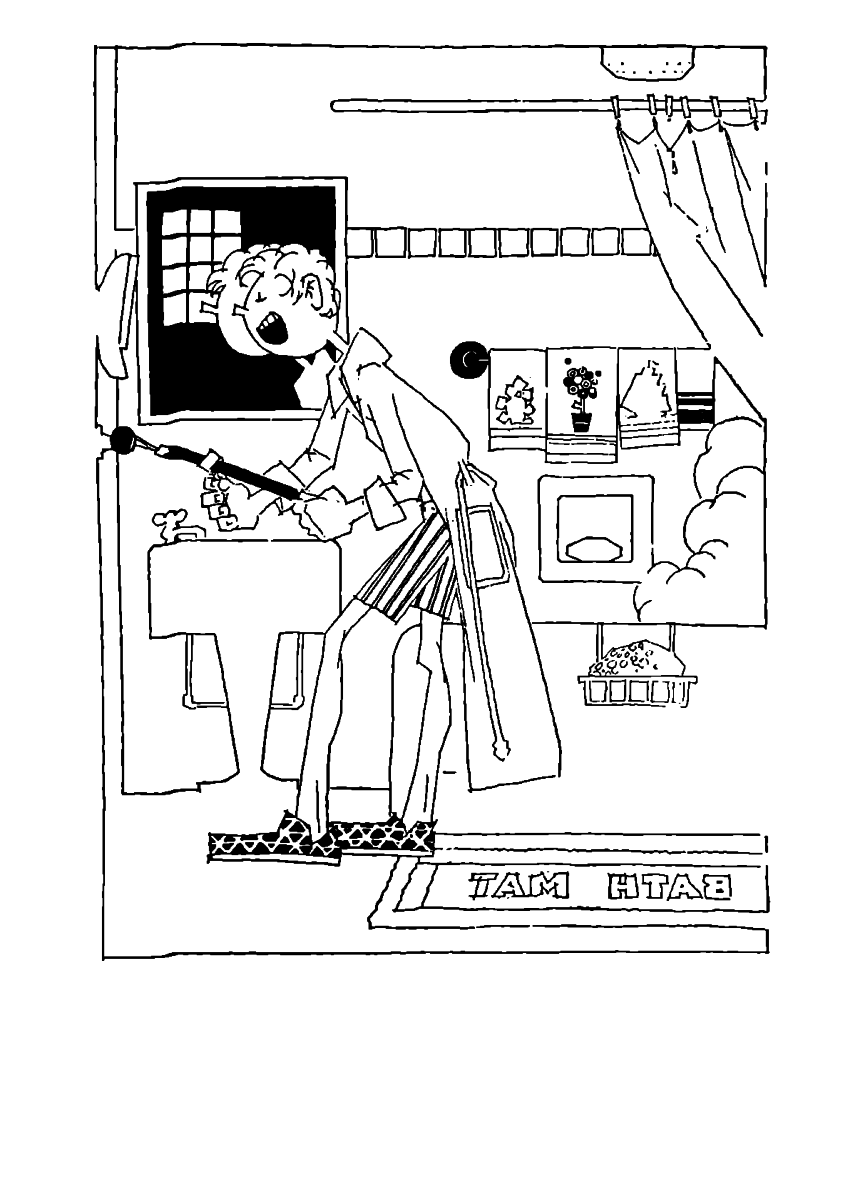
Remember while you’re here, you fool,
That this is not the Shelton pool.
If you would bathe we can’t refuse it,
But others here would like to use it.
The Great Outdoors and Nature’s calling
The bathroom is no place for stalling.
So kindly haste your morning laving
And hasten too, I pray, your shaving.
And if you happen, in your hurry,
To cut your throat, why we should worry.
But while you’re in here please remember
We’re moving back to town September.

Oh dainty damask napery
So cunningly bedight,
What flight of jest or japery
Conceived thy surface white?
How painful is the memory
Of time when thee I tried.
Thou scrapéd as an emery
My soft and tender hide.
My handsome features rowelling,
Thou made my skin to smart.
I’d do with softer toweling,
And somewhat less of art.
Oh dainty damask napery
So cunningly bedight,
A vain inutile drapery
Thou hangest there in sight.
I regard as a menace
The hosts who play tennis,
And I’m one who dislikes
Those who drag you on hikes.
The golf playing host
Is the one I hate most,
And round of croquet
Knocks me out for the day.
Oh a plague on those well meaning
Strenuous loons
Who consider their homes
As a branch of Muldoon’s.
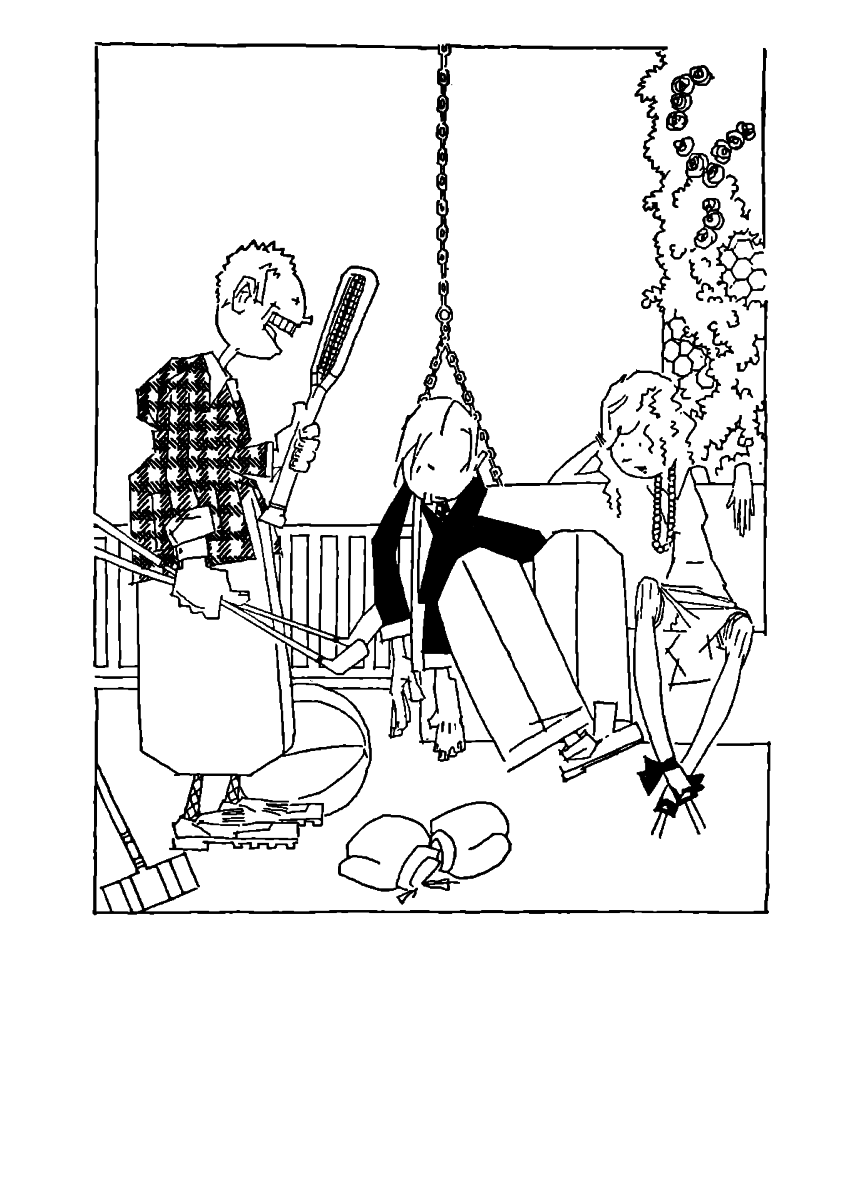
James P. Protheroe has a little radio.
James P. Protheroe has a little radio.
He turns on the doodad
And jiggles with the dinguses
And out of the horn comes a terrible squawk.
“There’s too much static,” says James P. Protheroe,
“There’s too much static I am sorry to say.
Wait till I wiggle this
Gadget just a little bit,
I’ll try to get Buffalo or LRX.”
Whenever a tune comes out of his radio
Whenever you are set for a piece that you’d like,
James P. Protheroe
Will twiddle with the dinguses
And the darned thing trails off in horrible noise.
“You ought to have heard this set last Saturday,
Got Pittsburg and Davenport as clear as day.
It isn’t quite right yet,”
Says James P. Protheroe.
“Maybe the batteries need charging again.”
James P. Protheroe has a little radio,
James P. Protheroe’s a terrible pest.
He never lets you listen
To the finish of anything.
As Mr. Lonsdale once remarked, “Aren’t we all?”
Harry O. I happen to know
Has a cellar of pre-war stuff below,
But when I’m invited there to dine
He always serves me home-made wine.
Morris E. is a restless soul
Who likes to drag me out to bowl,
Which makes the week-end tough for me,
But it’s very nice for Morris E.
Gilbert G. stays up all night
To play a game called Shedding Light
For which he has a passion deep,
But I myself prefer to sleep.
Leonard D. is fond of lakes,
He leads me round through hills and brakes.
And then he sits around at nights
To rhapsodize o’er building sites.
I like to visit Henry C.
His slothful tastes appeal to me.
He never moves except for food.
His Scotch and Rye are very good.
Oh, some may thrill to the bugle’s trill
Of the hunt at the break of dawn,
Or the rousing sport of the tennis court
On the green of a well-kept lawn,
And some may speak of the crash of cleek
As the ball down the fairway slams,
But give me the grandest sport of all,
A game of Anagrams.
A game of Anagrams, my lads,
And a rollicking spelling song,
And who’ll not thrill to a well-played kill
Of a word eight letters long?
So here’s to the sport of sports, my lads,
And give it a hearty cheer—
Oh, a rollicking game of Anagrams
And a good song ringing clear!
Though some, indeed, of a sluggish breed
Dull clods of a baser sort,
May sit unstirred by the hard-fought word
And the tingling zest of sport,
Yet here’s to the lad whose blood runs mad
As the letters turn and fall!
So yoicks for a game of Anagrams
And the sound of the Red Gods’ call!
So hark to the Red Gods’ call, my lads,
And the riotous sap of spring,
Let a cheer be heard for the well-spelled word;
For youth will have its fling.
And a rouse for the missing vowels, my lads,
As the long-sought word draws near—
Oh, a jolly old game of Anagrams,
And a good song ringing clear!
About the house a silence sad and deep;
In whispered tones the fretful children play;
The baby and the nurse we’ve sent away
To guard against a chance, incautious peep.
Like sentinels who silent vigil keep
With stealthy step we move from room to room.
Our home, once gay, is now a somber tomb,
For Mr. Pethwick-Baxter is asleep!
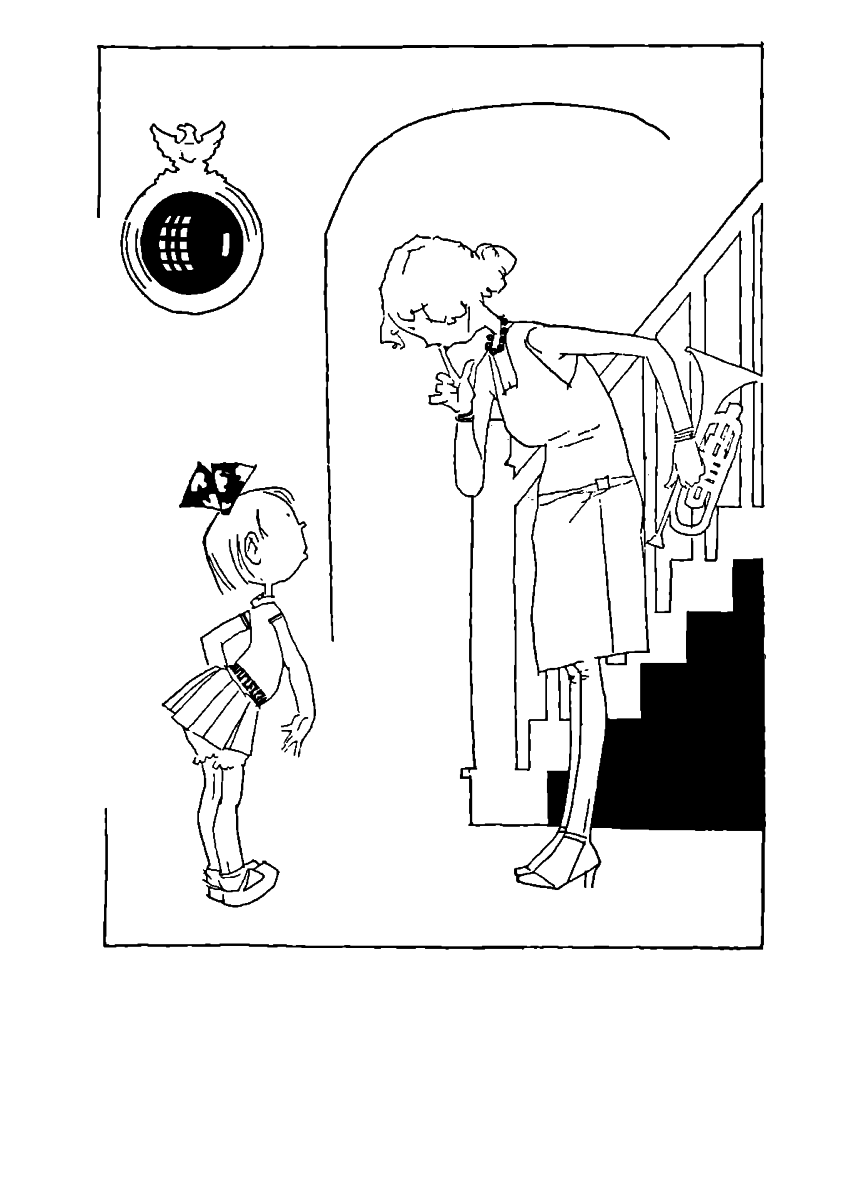
Oh Mr. Pethwick-Baxter, do you know
That hostelries throughout the land abound
Where you can rent a bedroom for a song,
And there, unvexed by heedless noise below,
And undisturbed by rest-destroying sound,
Can sleep your damned fool head off all day long?
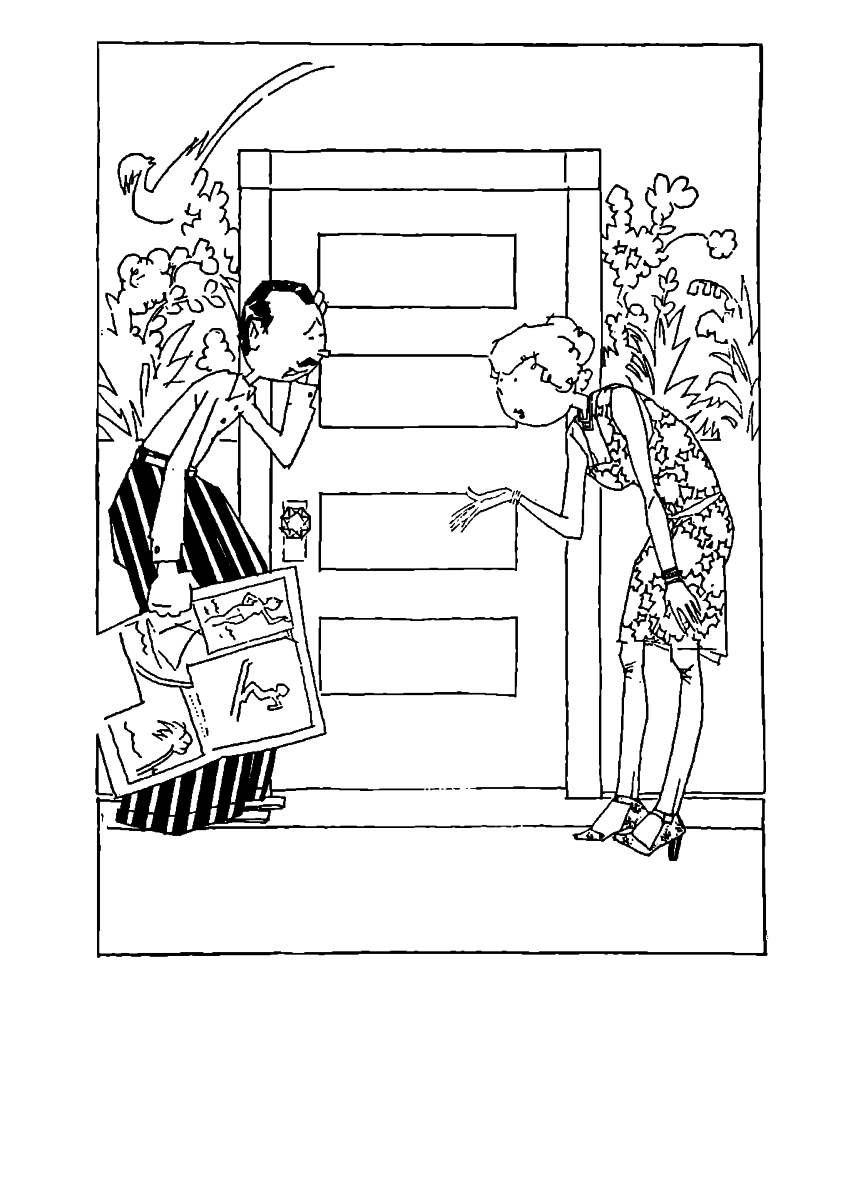
Our marketing was careful and complete.
With luscious food our groaning table groans
To satisfy the taste of Mr. Jones,
For Mr. Jones, we said, just loves to eat.
A fragrance fills the air of roasted goose,
And Jones sits sadly toying with his spoon.
Before him is a cracker and a prune,
For Mr. Jones is trying to reduce.
Upon his face a sad embarrassed grin
As muffins, corn and shortcake pass him by,
And wistfully he gazes on the pie,
And in his coffee drops some saccharine.
The grey of early morn seeps through the rain
As sleepily we rub our weary eyes.
’Tis six, and we poor wretches must arise
And, haggard, mourn our vanished sleep in vain.
What boots it now to grumble and complain
As down we creep to speed the parting guest?
It matters not that he’s destroyed our rest,
For Mr. Schultz must catch the early train.
He said last night “I think perhaps I’ll stay.
The trains are always jammed on Sunday night.
I’ll leave tomorrow morn at break of day.”
We had to acquiesce and act polite.
“I have to be in town” he said “at eight.”
For our part Friday would have been too late.
’Tis Saturday night and the first day is past,
Not a sound or a murmur is heard through the house,
And you, in your chamber, secluded at last
Settle down for an intimate chat with your spouse.
In whispers the day passes by in review
While one steady refrain with the melody blends,
“Our host is all right and I like his wife too.
They aren’t so bad but I can’t stand their friends.”
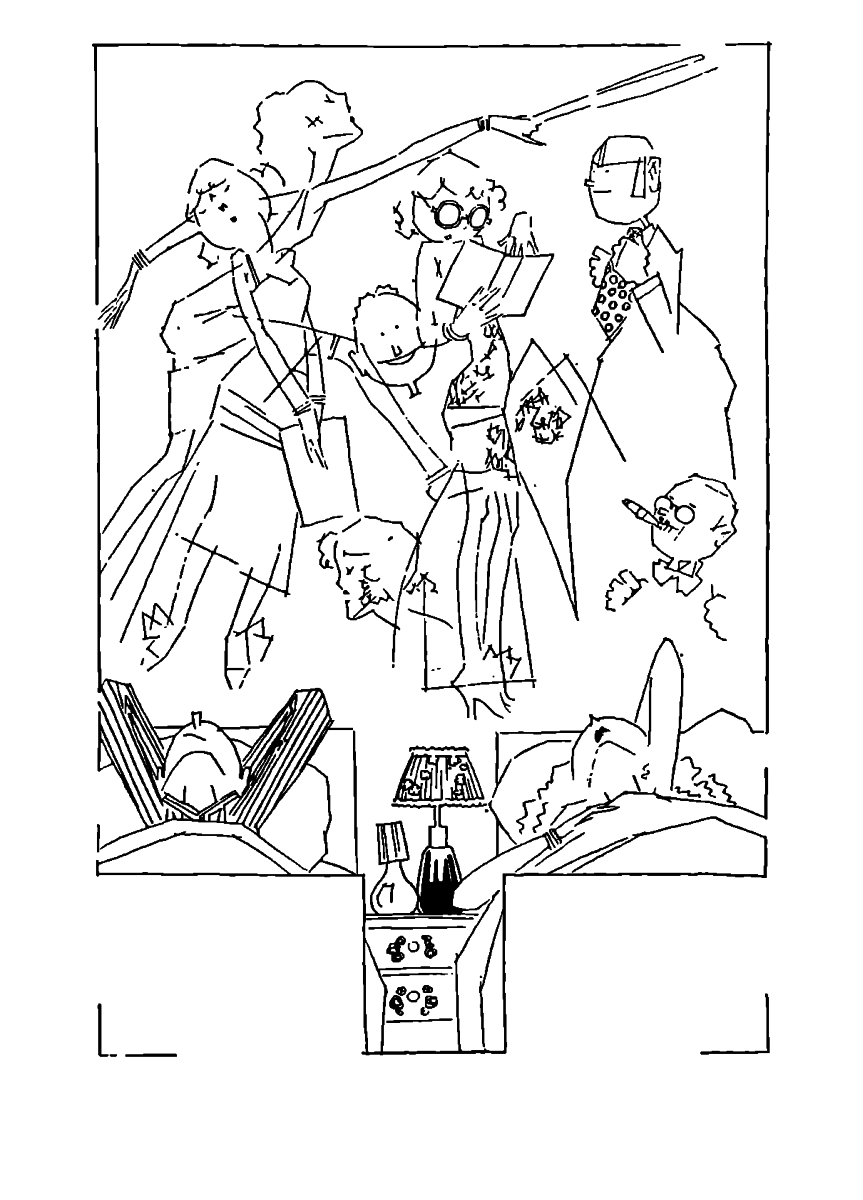
“That girl who subscribes to the Book-of-the-Week,
And the corpulent dame who imagined she sang,
And that handsome young sap, the professional sheik,
Now where, do you fancy, they gathered that gang?”
Then you open the windows and turn out the light
And you drop off to sleep as the day softly ends.
From your wife comes a drowsy and whispered “Good-night,
They aren’t so bad but I can’t stand their friends.”
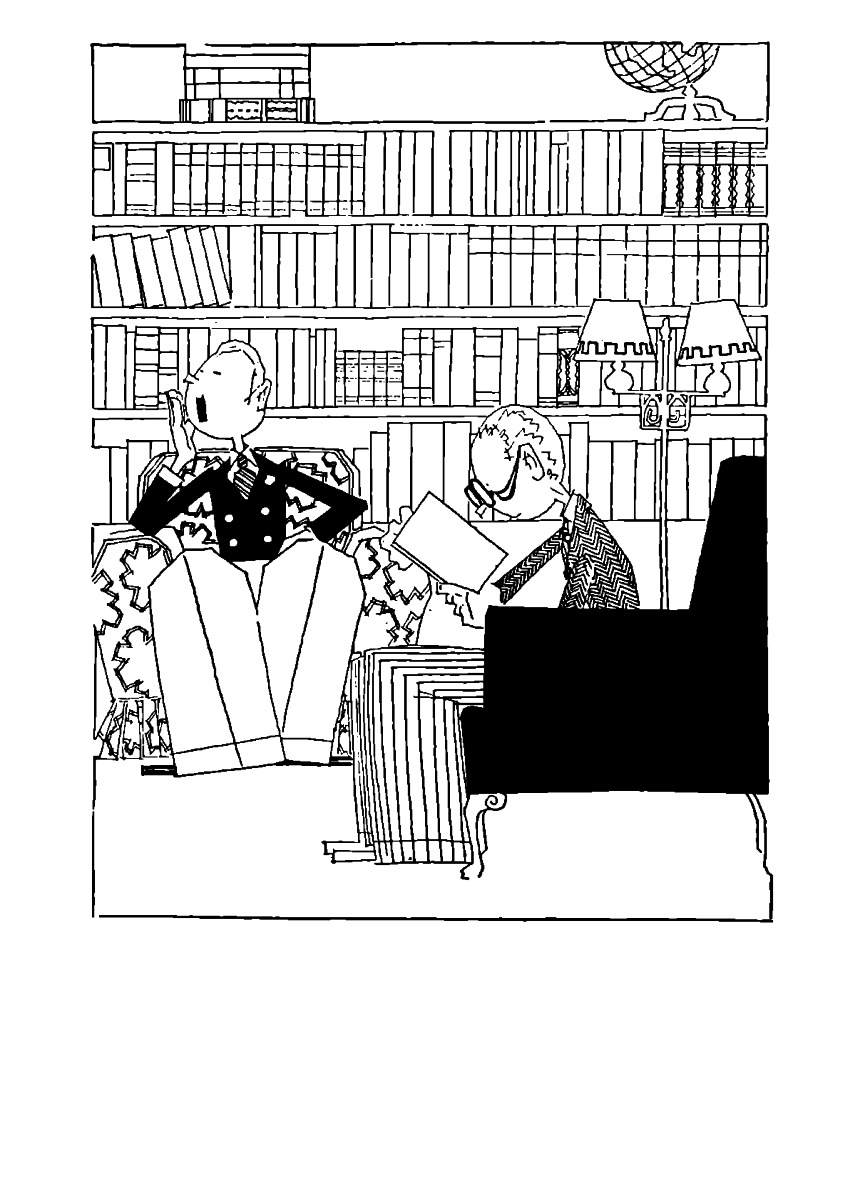
A week-end spent with Mr. G.
Is as a college course to me.
The conversation is so deep
That frequently I fall asleep.
From early morn till night time late
They settle all affairs of state.
They solve in comment crisp and terse
The riddle of the universe.
Convention they denounce as fake
And now and then give Sex a break.
Their literary talk, I find,
Is hardly suited to my mind.
They never have a pleasant word
Except for names I never heard.
I used to think myself quite bright,
I still believe that I was right.
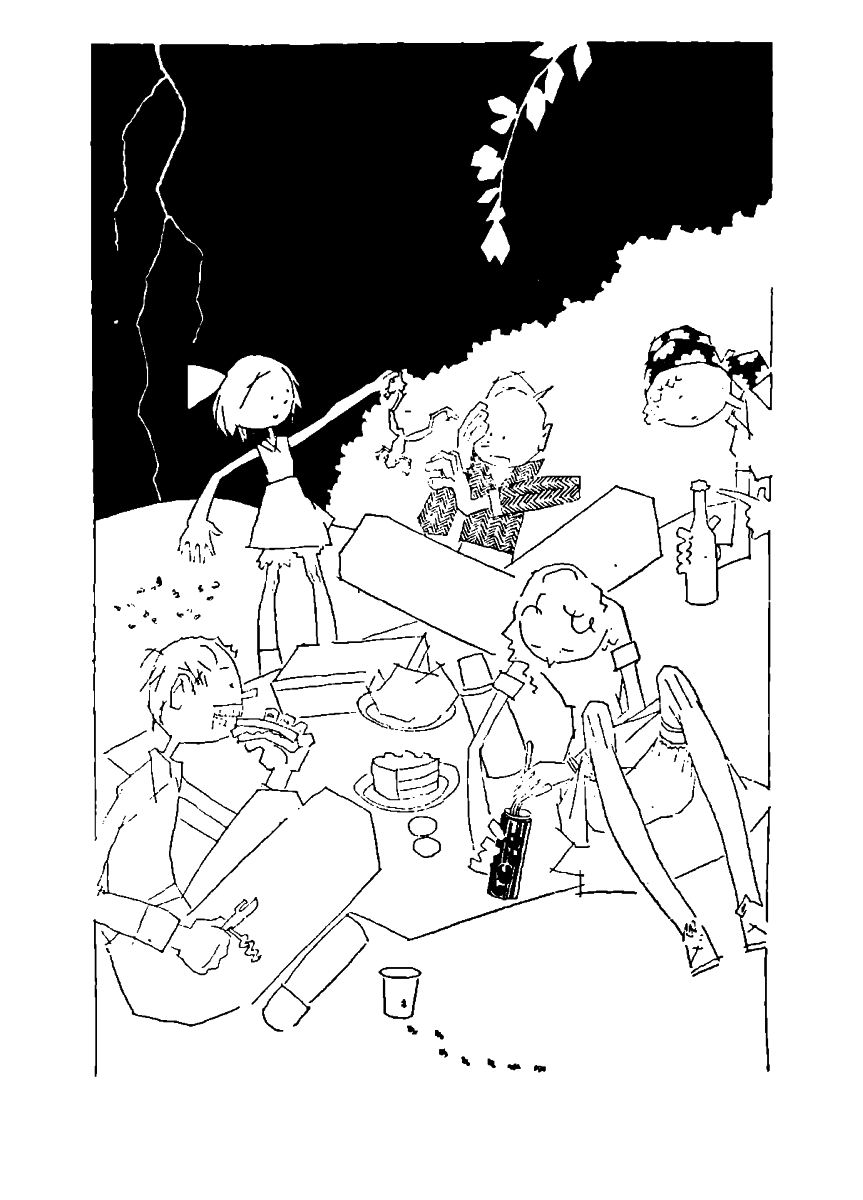
I was the leader of them, dominant and masterful,
Sternly supervising how the lunch should be prepared.
With hard-boiled eggs and sandwiches, of condiments a caster full,
And packs of paper napkins, from our domicile we fared.
Loud were the wailings of our offspring, young and petulant,
Holding up our starting—if you get just what I mean;
But at last we turned our faces toward the great wide open spaces,
To the great wide open spaces where the wind blows clean.
Then spake my wife to me, loudly and insultingly,
Telling me to sound my horn, and not to drive so fast.
Gil and Ada in the rear spake harshly and exultingly,
Saying that I should have turned the street before the last,
Loud was the weeping and the wailing of our child again.
Once again we stopped the car—this time for oil and gas.
Then rejoicing in a tank full, off we started glad and thankful
For the wind-swept, gypsy highways, and the scent of fresh cut grass.
Then ’neath the noonday sun deposited our flivver us,
There, at my direction, was our luncheon quickly spread.
The local animalculæ, ferocious and carnivorous,
Attacked us by battalions on the arms and face and head.
Shrill shrieked our darling child, vociferously clamorous,
Seeking the attentions that a mother can bestow,
Until filled with peanut butter, hard-boiled eggs and such-like clutter,
We observed that it was raining, and ’twas time for us to go.
Home through the lashing rain we turned our flivver presently.
Caustic were the comments of my fond and faithful spouse.
Gil and Ada in the rear discussed us most unpleasantly
Amid the wailing of our child until we reached our house.
So hey for the open road, and all that silly sort of thing,
The jolly gypsy highway, if I make my meaning clear.
Let the poets sing about it, I can gladly do without it,
For I’ve had enough of outdoor life to last me for a year.
Reprinted from Gay and Wistful.
If I only had a yacht,
Which I’ve not,
Spick and span with shiny paint,
Which it aint,
With a cushion ’gainst my neck
I would loll upon the deck
While the breeze,
Cooling breeze,
Played about my legs and knees.
Simple pleasures such as these
Would be my wont,
But I don’t.
Fragrant beverages I’d draw
Through a straw.
Pausing just to let them pass
Another glass.
And I’d never work nor think
But I’d sit all day and drink
While the sea,
Soothing sea,
Sang a barcarolle to me,
Oh how lovely it would be
On my yacht,
Which I’ve not.
When evening comes and daylight fades
Our host, who’s full of bright suggestions,
Exclaims “Come on! Let’s play Charades!”
(or Shedding Light—or Twenty Questions).
Then mirth and joy is unconfined
As I, with strenuous endeavour
Wear out my fagged and weary mind
And vainly struggle to be clever.
Oh host take pity on the guest
Who bears his fate without complaining.
Know well, he entertaineth best
Who isn’t always entertaining.
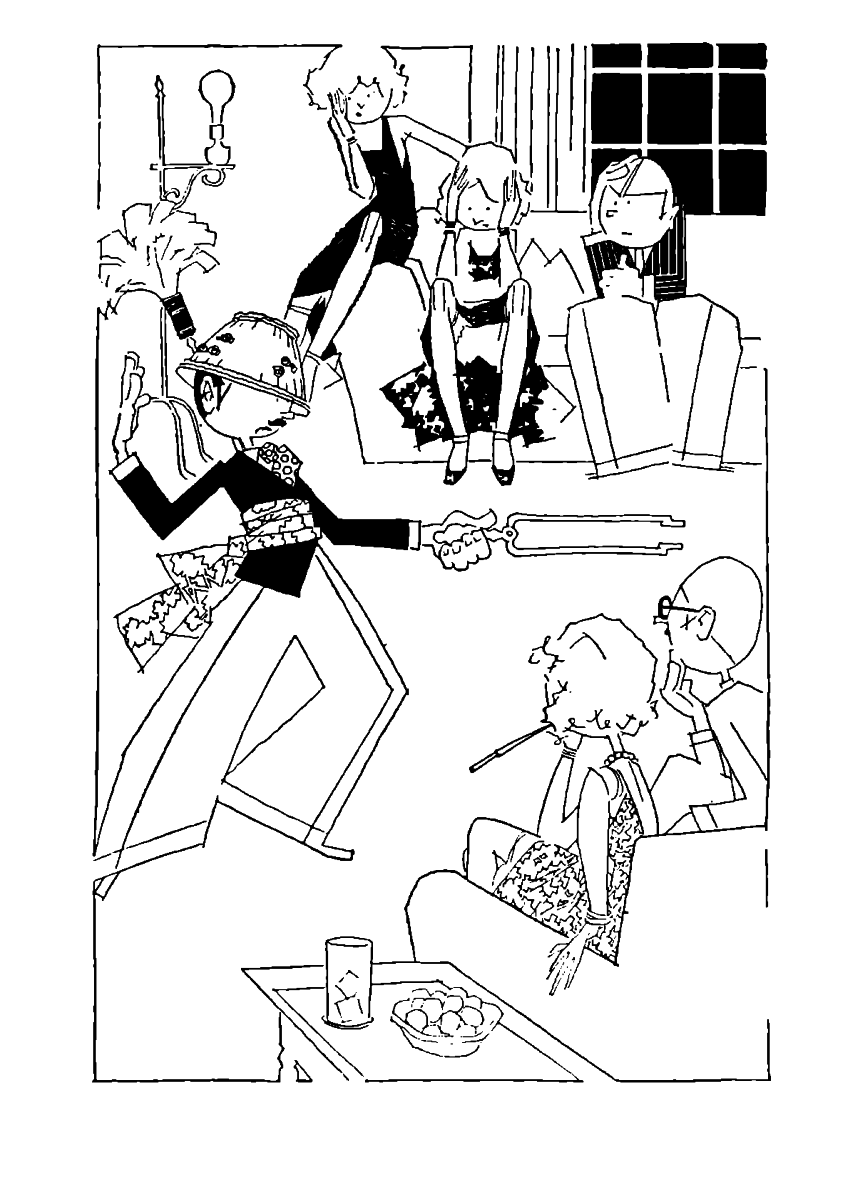
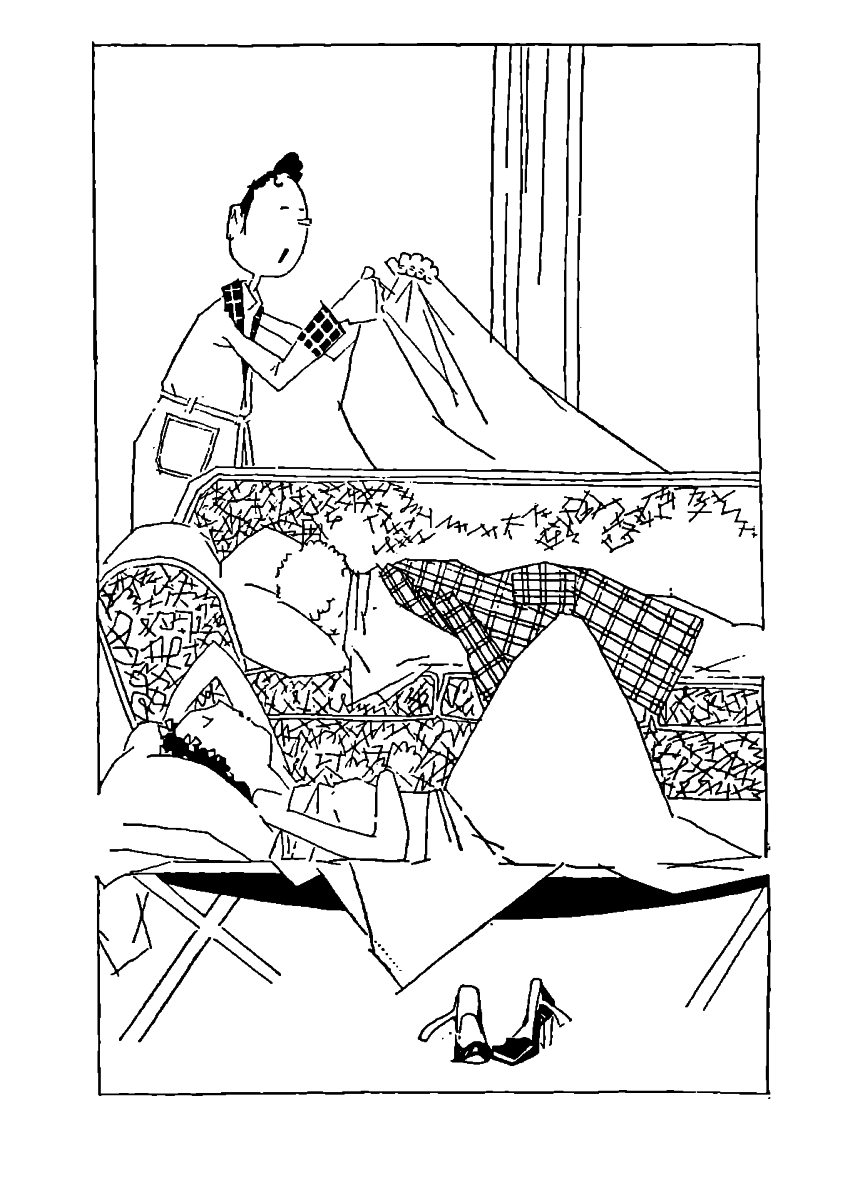
The kids are asleep on the sofa
While the wife has to sleep on a cot
We pass it off brightly and act most politely,
But really we mind it a lot.
Of course we’re delighted to see you,
May nothing your comfort here mar,
But you can’t realize in a house of this size
What an awful damned nuisance you are.
I have given you the guest room
But it’s really not the best room,
For the best room is the one I use myself.
May your sleep be calm and easy
Though your room’s a trifle breezy
And your bed, you’ll find, is harder than a shelf.
Though your room is damp and chilly
Still I think it would be silly
If I gave my warmest blankets to my guest.
For it’s not unlikely, is it,
That you may cut short your visit?
And I like my warmth and comfort when I rest.
You serenely drop in
Though you weren’t invited.
We all have to grin
And pretend we’re delighted.
You smoke our cigars
And you drink our best liquor
You take out our cars
Without even a flicker.
You raise quite a din
While the children are sleeping.
Do you think it’s an inn
Or a road house we’re keeping?
You arrived in these parts
Without giving us warning.
And it won’t break our hearts
If you leave in the morning.
We’re really heartbroken you’re leaving,
We hope that you’ll soon come again
For a very long stay now that you’ve found the way,
(For God’s sake, please don’t miss that train.)
’Twas perfectly lovely to have you.
You’ve given us all quite a thrill.
Though we hate you to go you’ll come back soon we know.
(Yes, over my body you will.)
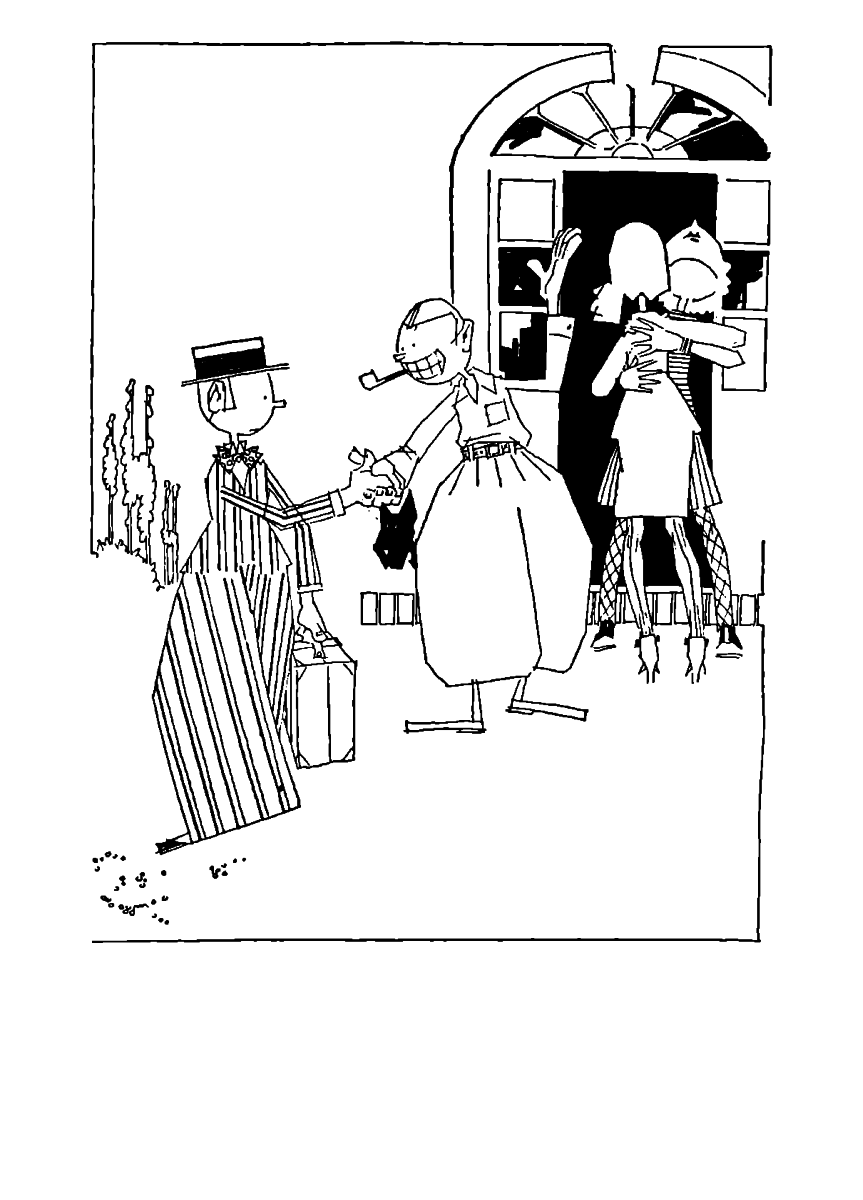
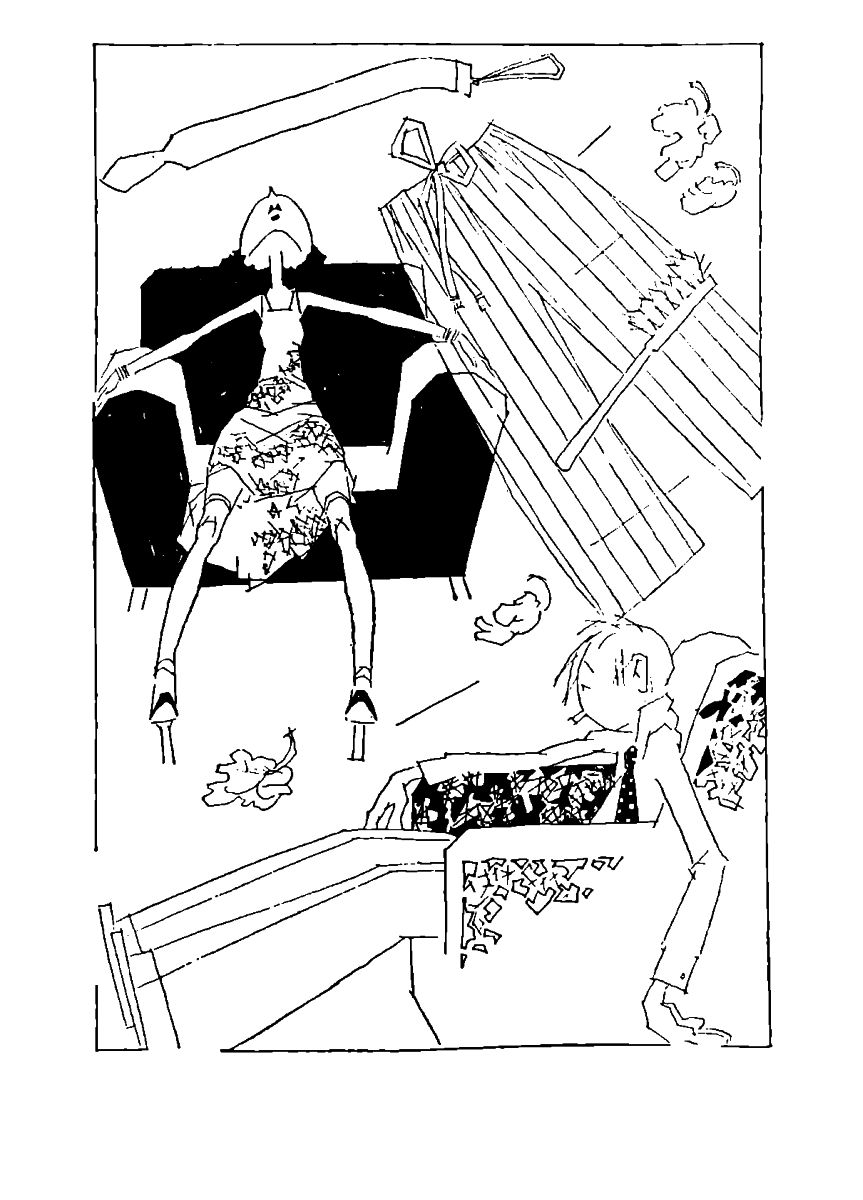
The season ends. The golden summer wanes,
And we, again, with peacefulness suffused
Forget the trials and woes of week-end dramas.
The final guest has gone and naught remains
Except, perhaps, a toothbrush, slightly used,
Some razor strops, and bottoms of pyjamas.
TRANSCRIBER NOTES
Misspelled words and printer errors have been corrected. Where multiple spellings occur, majority use has been employed.
Punctuation has been maintained except where obvious printer errors occur.
[The end of Saturday to Monday by Newman Levy and John Held, Jr.]